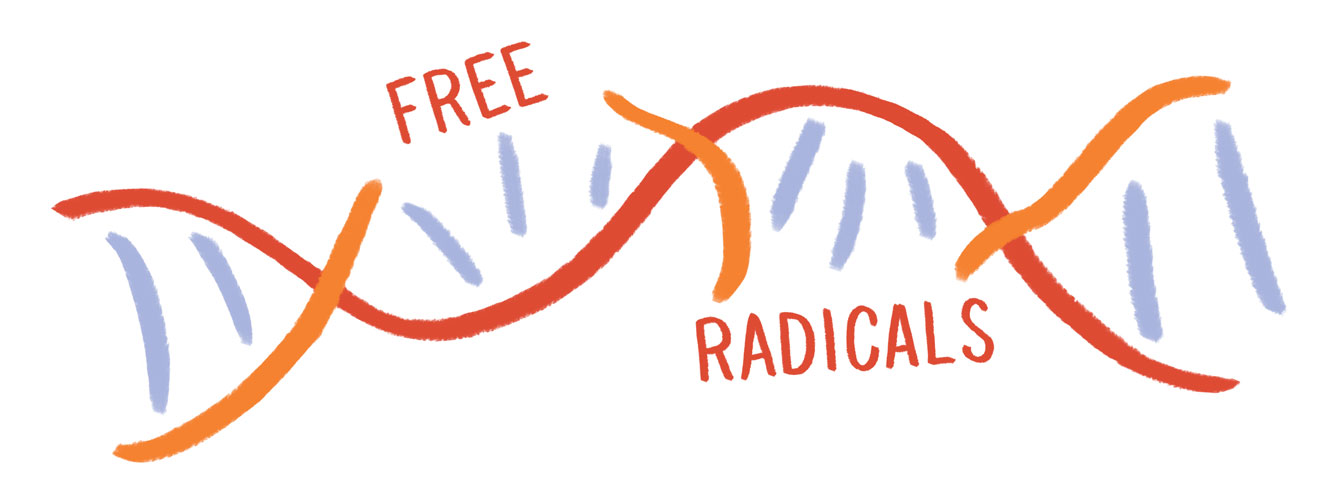GMOs are highly contentious for their presumed unhealthiness and danger to humans. However, what impacts do GMOs have in non-biological ways? Is it possible for GMOs to address social issues like world hunger, or are they being exploited to preserve the agricultural industry machine?
Transcript and Annotations below:
Hello!
Art. FreeRads. Here to continue talking about G-M-O tech but this time, go over some of the social impacts of the technology and its current use.
Last time I went over the science behind GMO stuff in an effort to clarify perceptions of GMOs as being unsafe to eat. To re-iterate: GMOs – not unsafe to eat, as corroborated by our understanding of the process of GMO creation, multiple health+food safety organizations across the world, and the majority of the “scientific” community.
This is not to say, however, that there are no issues with GMOs (there’s like quite a few).
Let’s set the scene first:
The year is 2016 and the world is in grave danger. World hunger has persisted even as countries like the United States shoot forward technologically.
Population growth, climate change, stagnation in global food productivity, and higher demand for meats across the world mean that by 2050, humanity will be critically unable to supply itself with one of its most basic necessities: food[1].
On this grim stage, GMOs have come to be touted as a possible savior for our collective food-related needs. As I went over last time[2], GMOs often have modifications that promote crop growth or ease the agricultural process for farmers, allowing for more efficient and higher-yield harvests.
In the context of global hunger, this seems like a good thing – more food means less hunger!
However, this is clearly not the case. In 2009, the world was already producing enough food to sustain everybody on the planet.
People were (and are) starving not because of issues with our ability to produce food, but rather our collective inability (or perhaps unwillingness) to distribute food equitably. GMOs present an opportunity to address one facet of a strained food system, but do not fundamentally change the systemic issues that cause hunger around the world.
To put it bluntly, hunger s an affliction of the poor, and GMOs do little to address conditions of poverty.
You could even argue that GMOs serve to further widen the gaps between developed and “undeveloped” nations and between the rich and the poor. The boogeyman of GMO technology, the agricultural corporation Monsanto, has been under constant scrutiny for using paralegal methods to introduce GMO seeds into international markets.
Monsanto and other agribusinesses have also relied on the legal system and patent laws at home and abroad to force GMOs into areas they are not wanted, try and charge farmers royalties for growing their crops, and maintain market monopolies.
These efforts to push GMOs have severely distorted the economic landscapes around them, especially in already vulnerable and poor communities.
The upshot of all this is that GMOs are being used to strongarm communities around the globe into growing exclusively GMO crops. So, although there is nothing inherently evil about the science that goes into making GMOs, the potentials of the technology are certainly being exploited for capital gain at the expense of farmers around the globe.
Perhaps, then, it is somewhat misleading to state that there are issues with GMOs. It would be more appropriate to say that there are issues with the way GMOs are used and the practices associated with GMO implementation.
Part of what I find concerning about this whole mess is the success with which the debate around GMOs has become framed as a “science vs. hippies” conflict, focusing on the scientific aspects of GMO safety and consumption. Focusing exclusively on the science really only serves to drown out important discussion on agricultural business practices and their associated economic implications.
The claim that GMOs are an equalizing force creating wealth and food for everyone in the world is, currently, flat out false. The opportunities to re-appropriate GMO tech to serve the needs of everyone in the world, on the other hand, do exist.
What our responsibility is, whether as consumers or scientists, is to push for an end to GMOs being used to sustain and perpetuate inequity and injustice, and to also demand that food justice be served with alternative, non-GMO recipes.
[1] for more info on impending issues with world hunger, visit http://ow.ly/rpfMN
[2] to view the previous video, visit https://freerads.org/2016/03/28/gmo-1/





